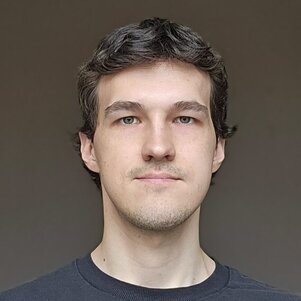Pavel Loktionov
Background
I received my BSc (2013-2017) and MSc (2017-2019) degrees in Chemical Engineering from Mendeleev University of Chemical Technology of Russia (Moscow, Russia). During that time, I began my work on the electrochemistry of hybrid flow batteries. From 2019 to 2023, I pursued my PhD at Federal Research Center of Problems of Chemical Physics and Medicinal Chemistry of Russian Academy of Sciences (Chernogolovka, Russia) and defended my PhD in electrochemistry in January 2024. In April 2024, I joined David Vermaas' lab as a postdoc, where I will do research on flow batteries and different energy conversion devices.
Research
Previously, I worked on developing novel flow batteries. In particular, I studied various physico-chemical and electrochemical aspects of hybrid halogen-based flow batteries using different custom-built devices and novel techniques.
The topic of my PhD thesis was the development of a new type of flow battery based on reversible water dissociation. During this project, I developed a two-membrane acid-base flow battery with two gas-diffusion electrodes, which uses hydrogen as a redox-active component. This novel cell design results in a significant improvement in the power and efficiency of reversible water dissociation. Moreover, using this device, we proposed a novel method for continuous low-grade heat harvesting.
Another part of my previous research focused on investigating the issue of capacity fade in vanadium redox flow batteries. In this project, my colleagues and I proposed a few novel in-situ methods (spectrophotometry, potentiometry, and coulometric titration) to analyze the composition of vanadium electrolytes. This allowed us to gain new insights into the electrochemical side reactions and crossover occurring in the battery, helping us better understand how capacity fades and propose ways to minimize this issue. Additionally, using these data and novel electrochemical cells for in-situ analysis, we developed new devices and techniques for the operando recovery of battery capacity.
